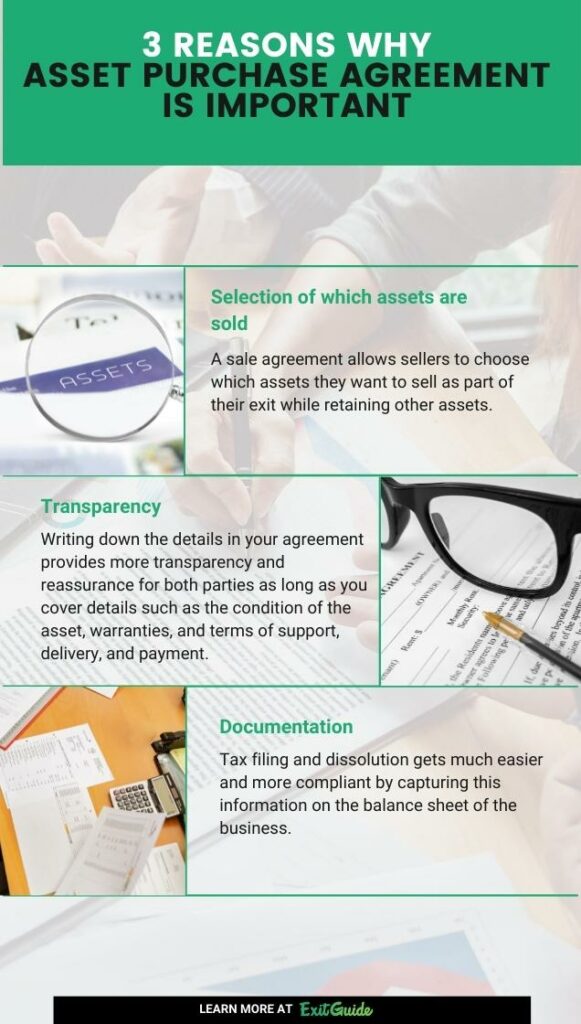Overview of Asset Purchase Agreements
An asset purchase agreement lays out the terms and conditions of the sale of the assets of a business and is not the same as the sale of a business. The buyer is only acquiring select assets and none of the liabilities of the company. The asset purchase agreement outlines which assets are being sold, the price and payment structure and may include information about warranties or support.
What’s unique about asset purchase agreements is that the seller can choose which assets in the business can be sold. This is very different from other exit options like acquisitions where the buyer acquires the entity including all assets and liabilities. It’s important to have your asset purchase agreement as detailed as possible to avoid any confusion or misunderstanding about which assets are included.
Learn what your business and assets may be worth.
Some assets may be tangible such as equipment, a building or inventory and some may be intangible such as brand name and business reputation, intellectual property or business know how. To learn more about the differece, check out this explanation from Investopedia.
What Is Typically In The Binding Agreement:
-
The agreement should also clearly state what specific asset(s) are being purchased and what it does not include.
- Any conditions agreed upon by the buyer and seller should explicitly be stated. This includes how and when the asset is delivered in addition to any actions that are needed to be done before the transfer of ownership
- Any warranties by the seller should be included in the asset purchase agreement. This is included to protect the buyer in the case of a faulty asset and the seller as well
- The price of all the assets being sold has to be clearly stated as well as payment terms. Will payment be made up front, installments? What
Benefits When Exiting A Small Business:
If the estimated valuation for your small business is not what you expected, selling the assets can be a good alternative to trying to sell the business.

Selection of which assets are sold:
Asset purchase agreements are one of the few ways in which sellers can choose what assets they want to sell in their exit while retaining other assets and the business itself. Any remaining assets in the business can be sold and the proceeds can be divided by the percentage of ownership amongst shareholders.
Transparency:
Putting the details in writing, the process has more transparency and reassurance for both parties as long as your agreement covers details such as the condition of the assets, warranties, and support tied to the asset, delivery, and payment terms.
Documentation:
An asset purchase agreement provides the seller proof of what was sold and related details for their financial records. This is then recorded on the balance sheet for the business making tax filing and dissolution much easier and compliant. It’s important to have this kind of documentation in your records for a variety of financial and legal scenarios in the future.
Summary
Selling a small business is common but not the only exit strategy for small business owners. To learn more on how you can craft the best asset purchase agreement for your business, consult with an exit coach or a financial expert.
